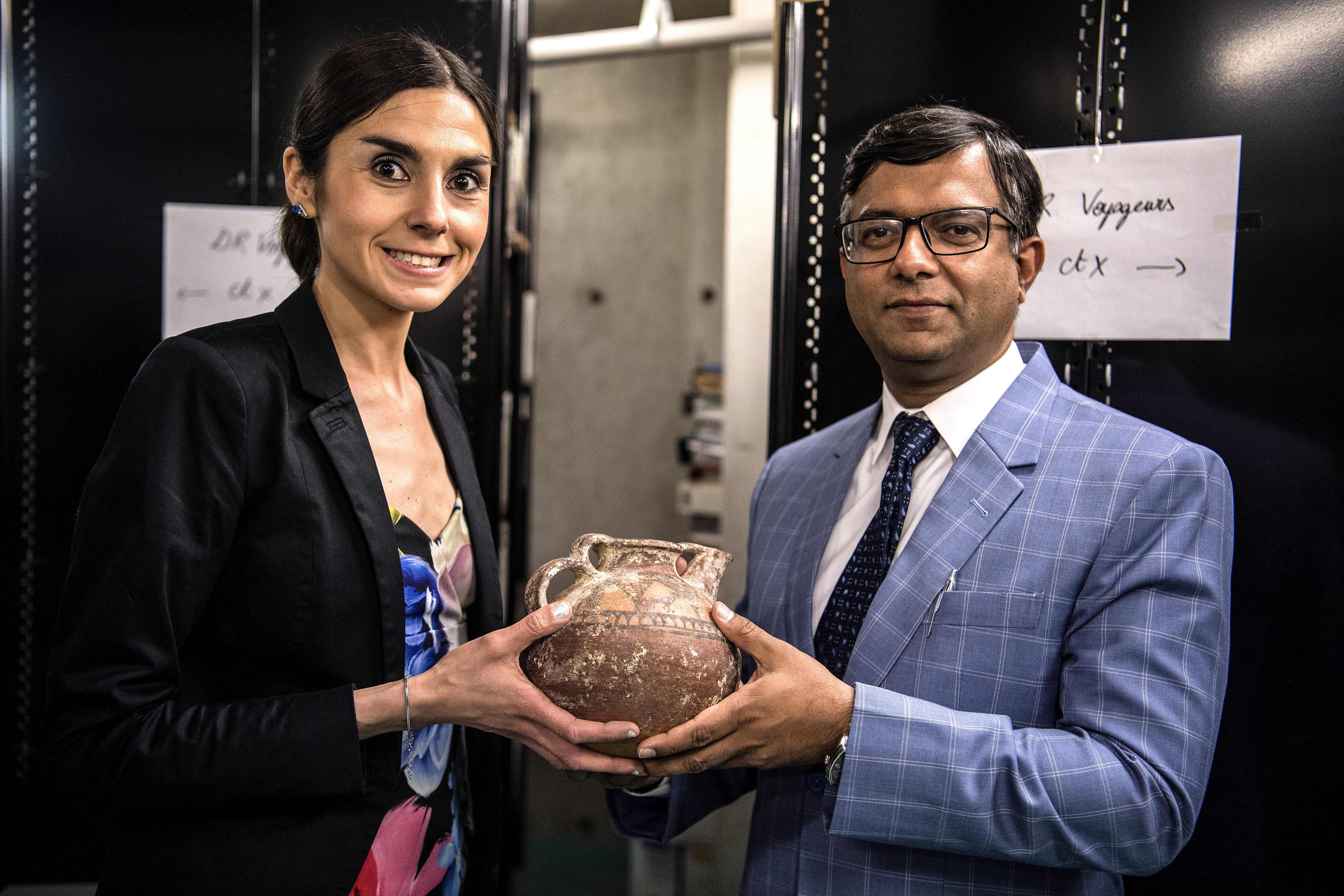
Almost 500 stolen artifacts, many of which date back to 4,000 BC, were returned to Pakistan this week after being confiscated by French officials more than a decade ago.
The saga stretches back to 2006, when customs agents at Charles de Gaulle Airport in Paris intercepted 17 terra cotta pots en route to a local gallery. Though identified modestly at the time as being more than 100 years old, it turns out the relics were much older than that. Experts dated the pots back to the second or third millennium BC and determined that they had likely been looted from ancient burial sites in Pakistan’s Balochistan province.
An investigation into the gallery in question—which has not been named publicly—turned up 445 objects in total, including ancient vases, busts, and goblets. Collectively, the artifacts are valued at roughly €139,000 ($157,000). French officials noted that the gallery will be slapped with a fine between €100,000 and €200,000 ($112,000 and $226,000) for trafficking in stolen goods.
The objects were returned in an official handover ceremony held yesterday at the Pakistani embassy in Paris.
For archaeologists studying the Balochistan province, the returned artifacts will provide key insights into the people who once called the area home. The region in southern Pakistan has been the site of an increasing number of thefts over recent decades, leaving researchers with gaps in their data. What’s more, the majority of archaeological excavations in Balochistan have been put on hold since 2007 due to political turmoil in the area.
“It is indeed a special moment for Pakistan,” Muhammad Majad Aziz Qazi, the leader of the repatriation effort, told Reuters. “It is also an emotional moment for us. We believe, today, that a part of Pakistan’s heritage is coming back to its homeland. Hopefully soon… you will find them in one of the best museums that we have in Pakistan.”
Abbas Sarwar Qureshi, head of the chancery at the Pakistani embassy, told the AFP that the objects would be shipped back to Pakistan in the coming weeks, though there are no immediate plans to exhibit them to the public.